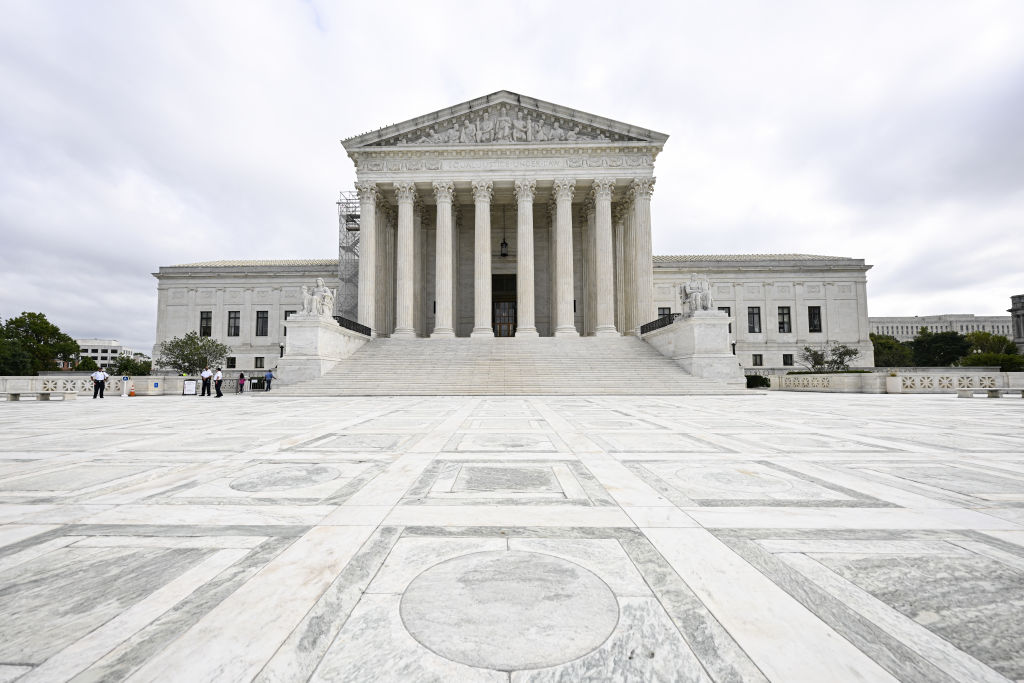



Everyone argued the Supreme Court needed to “save the children” on Tuesday over a ban on trans-affirming care for children. Saving, however, is in the eye of the beholder. In U.S. v. Skrmetti, the Biden administration joined some Tennessee residents in challenging the ban. Tennessee’s law prohibits doctors in the state from giving medical treatment to minors intended to facilitate gender transition. Meanwhile, the state argues they are saving the children from ill-advised treatment worse than the dysfunction it would treat.
Is it okay to treat minors suffering from gender dysphoria with elective surgeries and medications, including sterilization? In March of 2023, Tennessee decided against allowing such treatments, enacting a law titled the “Prohibition on Medical Procedures Performed on Minors Related to Sexual Identity.” Three Tennessee residents challenged the case, winning at the trial court and then losing at the Sixth Circuit Court of Appeals.
While the issue of minors transitioning is as hot as can be, this case, as argued, is not about whether it’s okay for doctors to help Johnny become Jane. Instead, it seems more about whether it triggers heightened scrutiny because it treats people differently based on their biological sex.
The challengers to the case, the Tennessee residents and the Biden administration, who argued in opposition to the law, hinged their case on the intermediate scrutiny standard. The Sixth Circuit applied the much lower threshold for determining the constitutionality of state laws, the rational basis test. This test allows laws rationally related to a legitimate state interest. You can drive a truck through that test, and states do. Where the Court puts the breaks on states is where fundamental rights are involved and when discrimination based on immutable characteristics comes into play. Those issues are elevated.
Intermediate scrutiny requires laws to be substantially related to achieving an important governmental interest. It’s a much tougher bar and one the Tennessee law likely can’t hurdle. So, then, the fight was about what level of scrutiny the Supreme Court should apply. Those fighting the law say that because, for instance, adolescent boys may be treated with testosterone, preventing teenage girls from receiving the same hormone to treat their gender dysphoria is sex discrimination. Solicitor General Prelogar said:
“Our primary argument is that this statute on its face says you can’t have medications inconsistent with sex. And no matter what you think about transgender discrimination generally, that’s a sex-based line. It’s no different than saying you can’t dress inconsistent with your sex.”
Matthew Rice, solicitor general of Tennessee, argued justices need to apply the higher-level review, “[G]iving testosterone to a boy with a deficiency is not the same treatment as giving it to a girl who has psychological distress associated with her body.”
 The Supreme Court historically seizes chances to avoid ruling on contentious issues, and this case seems ripe for such a disposition. General Prelogar said state restrictions on trans treatments were not necessarily unconstitutional and spoke favorably about restrictions that are not total bans, addressing individual needs. Justices might find it appealing to send the case down for additional scrutiny without weighing in on trans-politics directly.
The Supreme Court historically seizes chances to avoid ruling on contentious issues, and this case seems ripe for such a disposition. General Prelogar said state restrictions on trans treatments were not necessarily unconstitutional and spoke favorably about restrictions that are not total bans, addressing individual needs. Justices might find it appealing to send the case down for additional scrutiny without weighing in on trans-politics directly.
The case featured an appearance by the first trans lawyer to argue before the Supreme Court. Chase Strangio is a transgender male with Transgender Justice and an attorney with the American Civil Liberties Union. The High Court allotted more than twice the time most cases get for these arguments. A decision is expected this spring.
